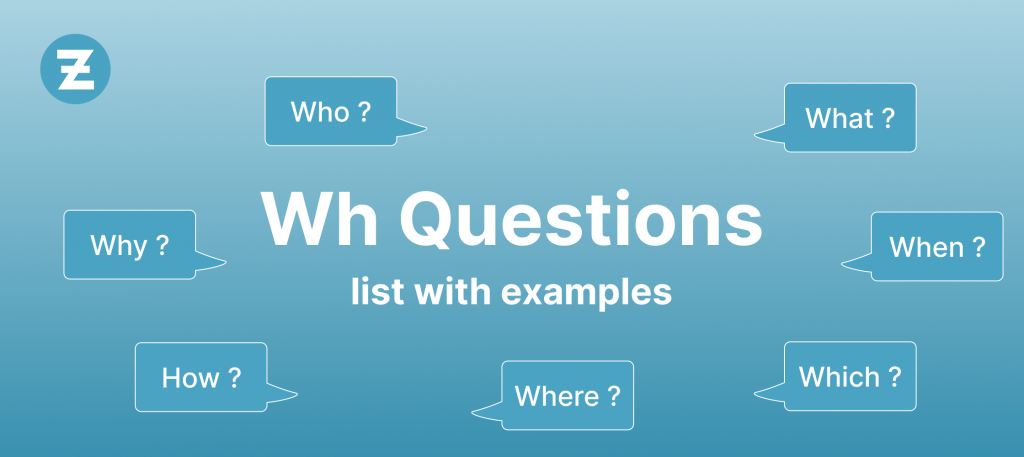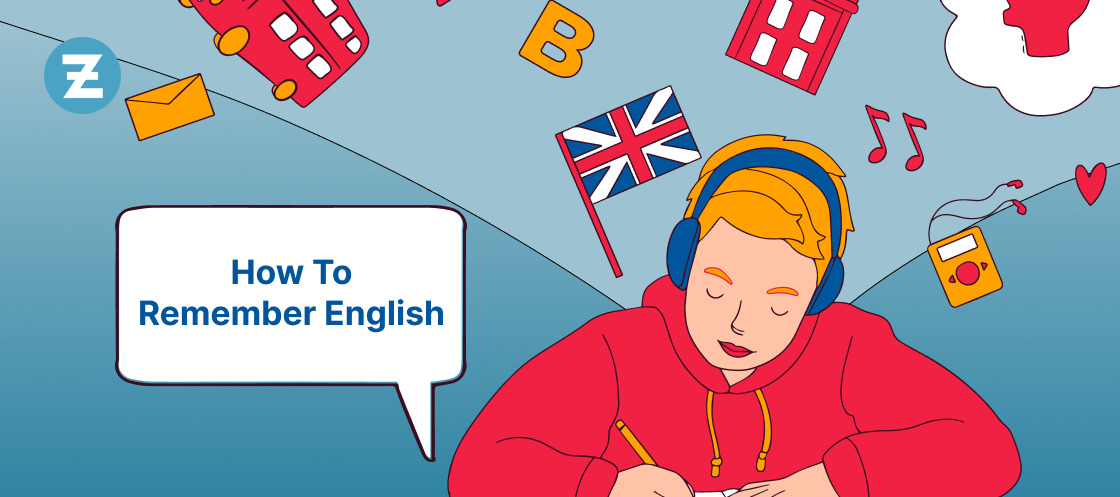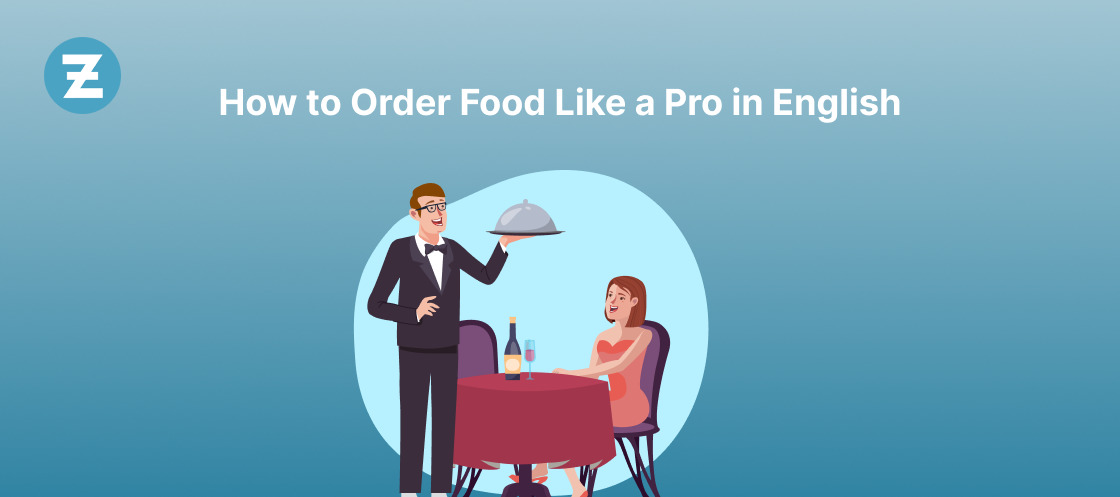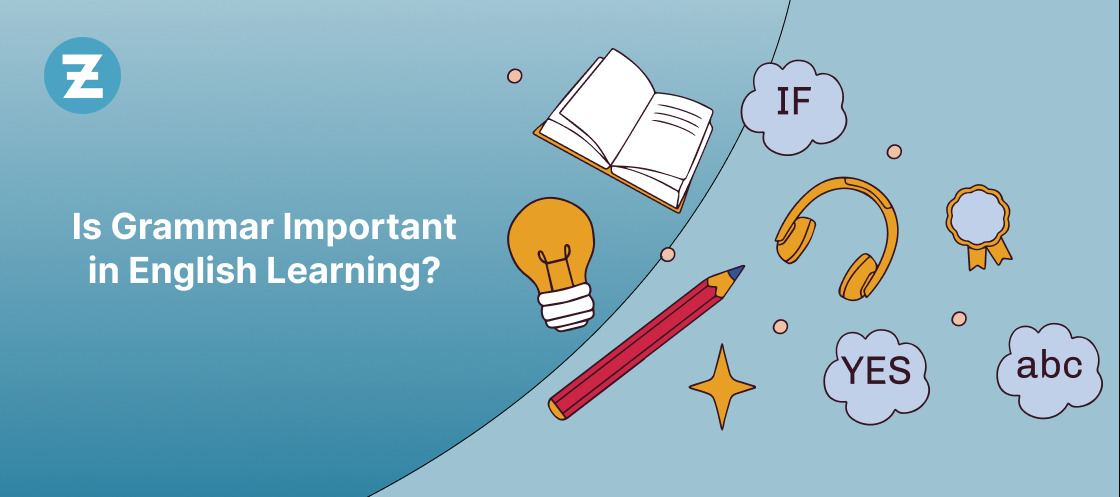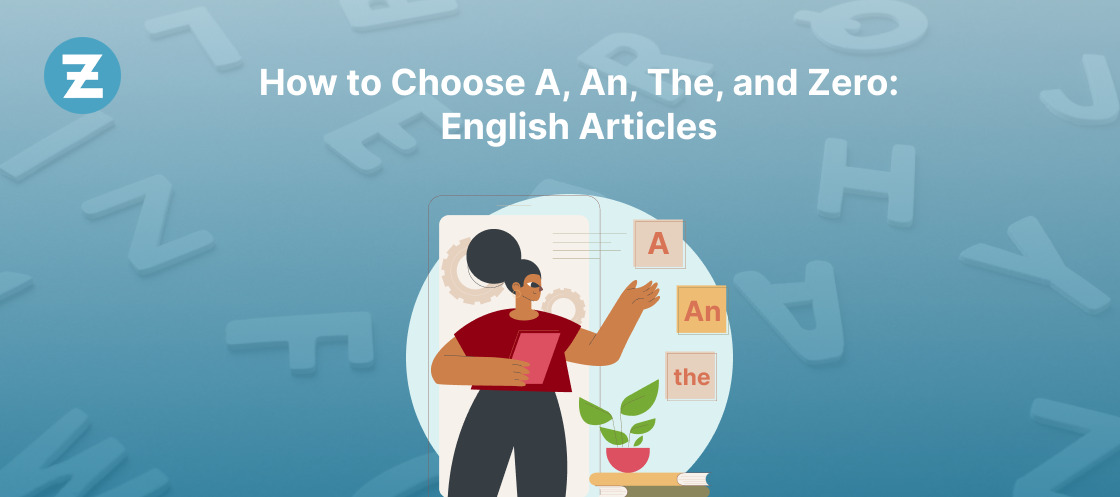Asking questions is an essential part of communication. It’s how we gather information, exchange ideas, and learn about the world around us. In English, seven key questions elicit specific types of information. Each question serves a unique purpose and can be used in various situations. Understanding these questions and their functions can help improve your communication skills and lead to more effective conversations. In this blog post, we will provide an overview of these seven questions and explore their uses in greater detail.
Here is an overview of the 7 WH questions in English,
Who
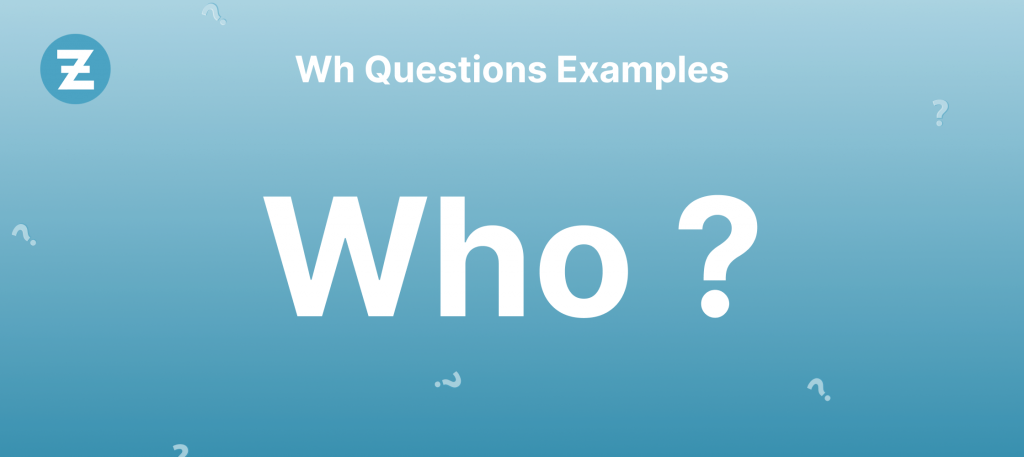
“Who” is a pronoun that is used to refer to people. It is often used to ask questions about people, such as “Who is that?” or “Who did that?” However, there are many more situations where “who” is appropriate.
One common use of “who” is in sentences where the subject is a person. For example, “Who is going to the party?” or “Who wants to come with me?” In these cases, “who” refers to the person or people who are the sentence’s subject.
Another common use of “who” is in questions that ask for information about a person’s identity. For example, “Who are you?” or “Who is your boss?” In these cases, “who” is used to ask for the name or identity of the person in question.
“Who” can also be used in situations where you are referring to a group of people. For example, “Who are the committee members?” or “Who is responsible for the project?” In these cases, “who” is used to refer to the group of people who are involved in the situation.
Here are some examples,
- Who is the company’s new CEO?
- Who won the Nobel Prize for Literature this year?
- Who is going to pick up the kids from school?
- Who is your favorite author?
- Who is going to be the keynote speaker at the conference?
What
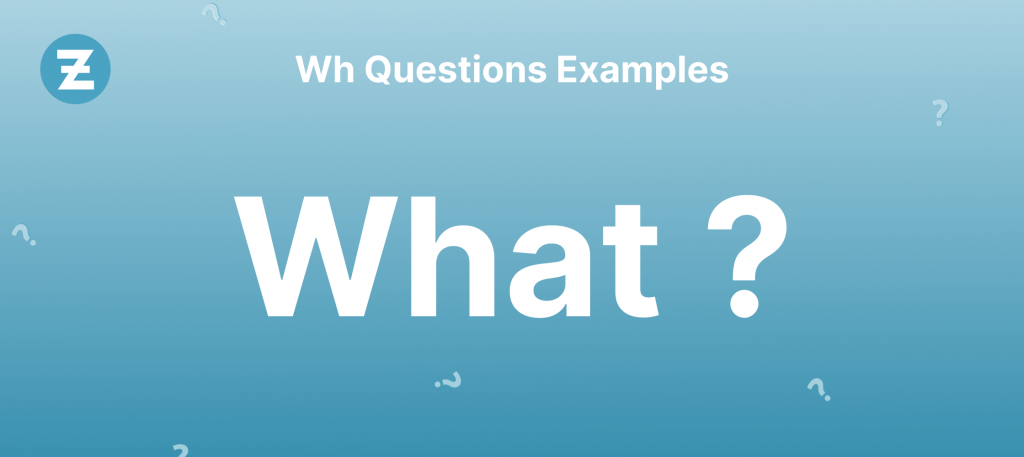
“What” refers to a thing, an action, or an idea. It is a small word that holds immense power in the English language. It is a word that we use every day, sometimes without even realizing it. But have you ever stopped to think about the significance of this simple word? In its simplest form, “what” is a pronoun used to ask for information or clarification about something. For example, “What time is it?” or “What is your favorite color?” However, “what” can be used more complexly to express ideas and actions.
One of the ways “what” can be used is to express an action. For example, “What are you doing tonight?” or “What did you do over the weekend?” These questions inquire about a person’s actions or plans and can help start a conversation or build a connection.
Another way “what” can be used is to refer to a thing. For example, “What is that strange noise?” or “What is your favorite book?” These questions inquire about an object or idea and can help to expand our knowledge and understanding of the world around us.
Here are some examples,
- What time is the meeting?
- What is the capital city of France?
- What is your favorite movie?
- What did you have for breakfast this morning?
- What are your plans for the weekend?
Read Also: Common English Words with Multiple Meanings
Where
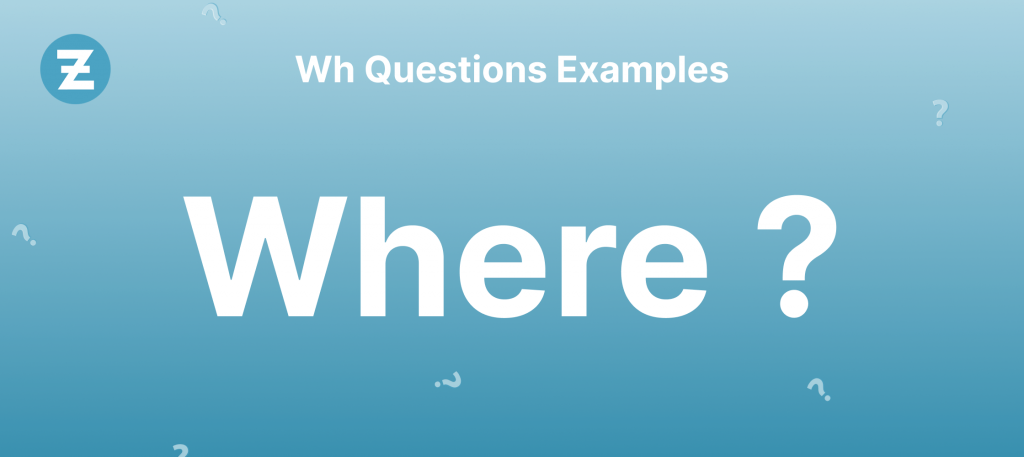
Where is an important word that we use frequently in our communication. It refers to a specific place or location and helps us provide context and clarity in our messages. When we use the word, we are essentially asking or providing information about the physical or virtual space in which something is happening or exists. For instance, we might ask, “Where is the nearest coffee shop?” or “Where can I find this information on your website?” In both cases, the word where is used to specify a particular place or location.
Using where in our communication can also help us avoid confusion and misunderstandings. For example, if we are giving directions to someone, we might use where to indicate landmarks or points of reference to help the person find their way. Similarly, if we are discussing a project or event, we might use where to specify the venue or location where it will be taking place.
Another way to use where effectively in our communication is to provide additional context or information about a particular place or location. For instance, if we are describing a restaurant to someone, we might use where to indicate its ambiance, menu, or other distinguishing features. This can help the person better understand what to expect and make an informed decision about whether or not to visit the restaurant.
Here are some examples,
- Where is the nearest gas station?
- Where did you go for your summer vacation last year?
- Where are my car keys?
- Where is the restaurant located?
- Where can I find a good book on history?
When
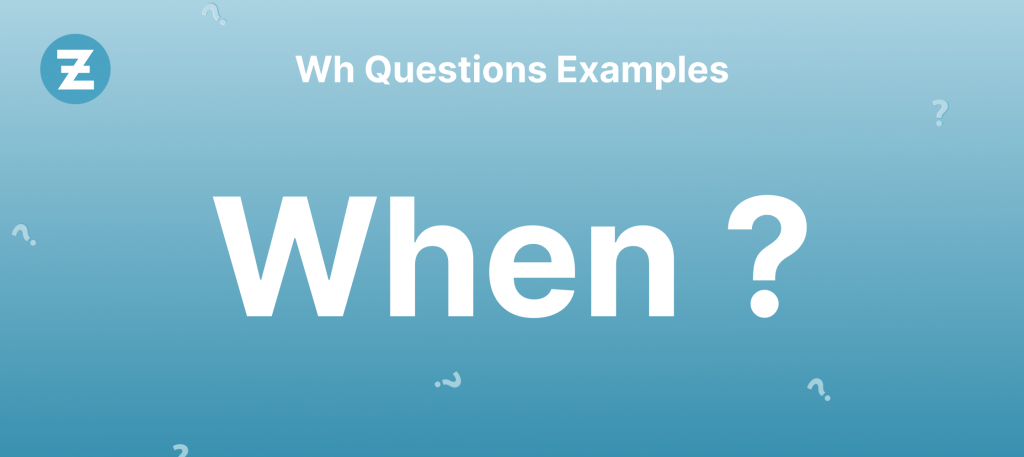
When it comes to effective communication, using the word “when” can be incredibly impactful. Whether you’re telling a story, giving instructions, or making plans, knowing when to use this word can make all the difference in getting your message across clearly and efficiently.One key use of “when” refers to a specific time or period. For example, you might say, “When I was in college, I studied abroad in Spain,” or “When I was a child, my favorite toy was a stuffed animal named Mr Snuggles.” In these cases, “when” helps to establish a clear point in time and provide context for the rest of the sentence.
Another way to use “when” is in conditional statements. For instance, you might say, “When it rains, I always bring an umbrella,” or “When I finish this project, I’m going to take a vacation.” These statements suggest a potential future scenario and help to illustrate cause-and-effect relationships.
Additionally, “when” can indicate a specific event or occurrence. For example, you might say, “I’ll call you when I get home,” or “When the concert starts, we should try to get close to the stage.” In these cases, “when” is a marker for a specific moment.
Here are some examples,
- When is the next train to New York City?
- When did you start learning how to play the guitar?
- When is the deadline for submitting the project proposal?
- When are you planning to go on vacation?
- When does the museum close on Saturdays?
Read Also: Idioms to Make You Sound Like a Native English Speaker
Why
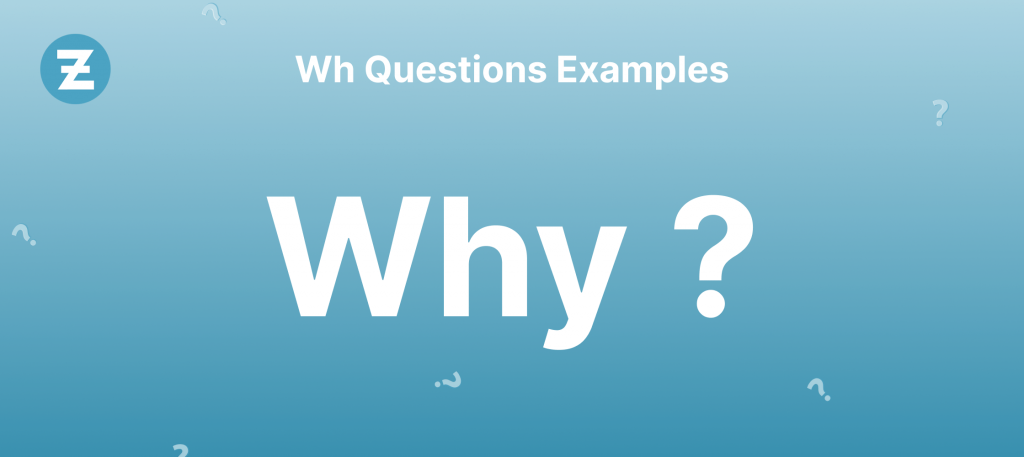
When we want to know more about something, we use why to ask for an explanation. For example, “Why did you choose this career path?” or “Why did you decide to move to a new city?” These questions help us understand the reasoning behind someone’s actions or decisions.
In addition to asking questions, why can also be used to explain. When explaining a concept or idea, we can use why to provide a reason or justification. For example, “Why it is important to exercise regularly” or “Why we need to protect the environment.” By providing a clear explanation, we can help others understand our point of view and persuade them to take action.
Another way we use why is to express curiosity or wonder. We can use why to express our curiosity and ask for more information when we see something intriguing. For example, “Why is the sky blue?” or “Why do birds migrate?” These questions can lead to interesting discussions and help us learn more about the world around us.
Here are some examples,
- Why did you decide to become a doctor?
- Why did the company decide to invest in renewable energy?
- Why is the sky blue?
- Why did the team lose the game?
- Why do you always take a break at noon?
Which
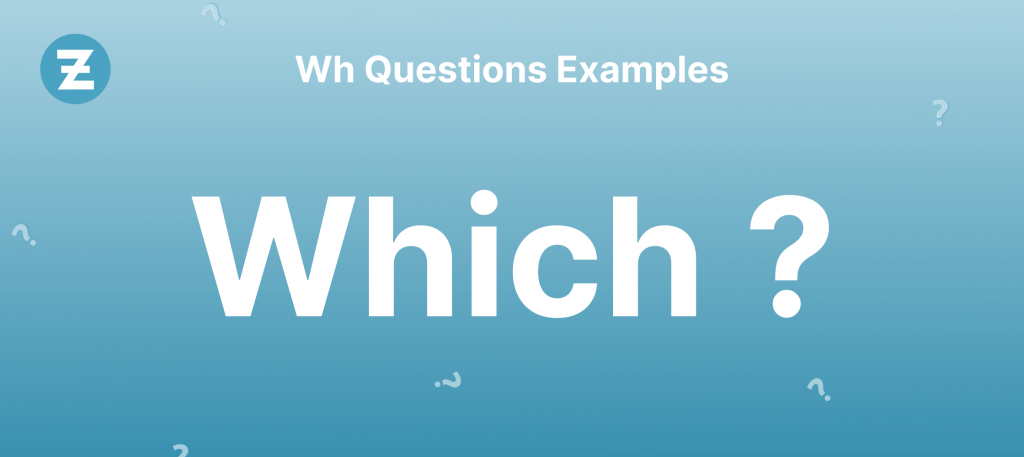
“Which” is a powerful word that helps us narrow our options and make more informed decisions. It is a pronoun that refers to a choice between options or alternatives. We use “which” to ask questions, compare, and clarify information.
For example, let’s say you’re in the market for a new car. You’ve researched different models and are trying to decide between a sedan and an SUV. You could ask yourself, “Which type of car would be better for my lifestyle?” This question helps you focus on the most important factors, such as your driving needs and the size of your family.
It can also be used to make comparisons. For instance, if you’re considering two job offers, you might ask yourself, “Which company offers better benefits?” This question helps you compare the pros and cons of each option and make an informed choice.
Here are some examples,
- Which restaurant do you want to go to tonight?
- Which color do you prefer, blue or green?
- Which team do you think will win the championship?
- Which book should I read next?
- Which movie did you watch last night?
Read Also: Most Commonly Used English Verbs and Their Meanings
How
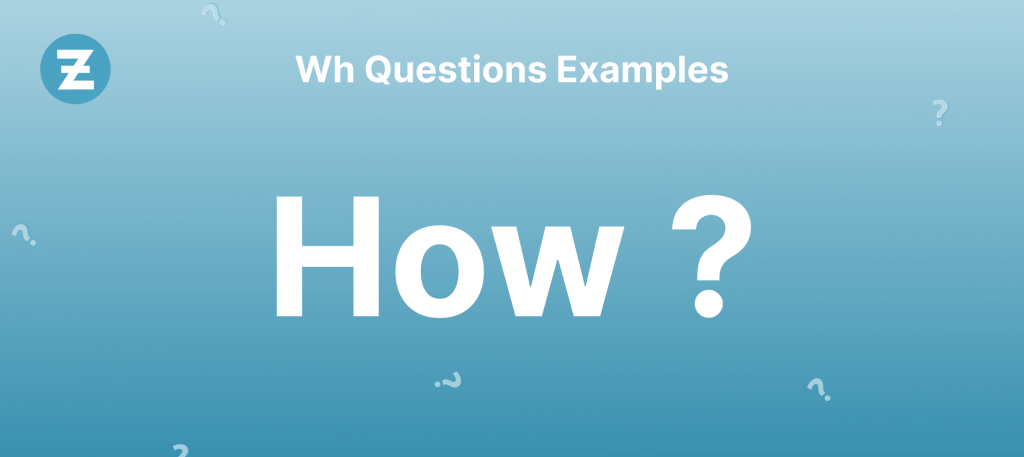
How is it used in various contexts and can be extremely helpful when communicating complex ideas or processes. One of the most common uses of the word “how” is in the form of a question. For example, “How do I get to your office?” or “How can I apply for this job?” In these cases, “how” seeks information or clarification about a particular process or procedure.
Another common use of “how” is when providing instructions or guidance. For instance, “Here’s how you can make a delicious cheesecake” or “This is how you can troubleshoot your computer problems.” In these cases, “how” explains the step-by-step process of completing a task or solving a problem.
The word “how” can also express surprise or disbelief. For example, “How did you finish this project so quickly?” or “How on earth did you come up with that idea?” In these cases, “how” expresses amazement or admiration for something remarkable or unexpected.
Here are some examples,
- How do you bake a cake from scratch?
- How did you learn to speak English so well?
- How can I improve my time management skills?
- How long does it take to drive from New York to Boston?
- How much does it cost to repair a broken laptop screen?
- To clarify the 7 Wh questions, here is a summary table outlining the different types of WH questions, their uses, and examples.
| Question Word | Use | Example |
| Who | Refers to a person or group of people | Who is coming to the party tonight? |
| What | Refers to a thing, an action, or an idea | What is your favorite color? |
| Where | Refers to a place or location | Where did you go on your last vacation? |
| When | Refers to a specific time or time | When is your birthday? |
| Why | Refers to a reason or explanation | Why did you choose to study engineering? |
| Which | Refers to a choice between options or alternatives | Which shirt should I wear to the job interview? |
| How | Refers to the way something is done or how it occurs | How do you make a cup of coffee? |
To Conclude
In conclusion, the 7 WH questions in English – Who, What, Where, When, Why, Which, and How – are powerful tools for gathering information, expressing curiosity, and building connections. By mastering these question words and using them effectively in your writing and speaking, you can enhance your communication skills and deepen your understanding of the world. So next time you’re faced with a question, consider which WH word is most appropriate and watch as your conversations and interactions become more meaningful and engaging.
To improve your English speaking and writing skills further, you can use the free language improvement app Zoundslike. Additionally, it is a game-based language learning app to polish your English skills with fun. Download the app now.
FAQs
Q.1 What are the 7 WH questions in English?
The 7 WH questions in English are: Who, What, When, Where, Why, Which, and How.
Q.2 Why are the 7 WH questions important in communication?
The 7 WH questions serve as valuable tools in communication as they help gather information, clarify details, and engage in meaningful conversations.
Q.3 How can the 7 WH questions be used in everyday conversations?
The 7 WH questions can be used to inquire about people, events, locations, reasons, choices, and methods, enabling individuals to gather information and gain a deeper understanding of various topics.
Q.4 How does asking “What” contribute to effective communication?
“What” allows individuals to seek specific information about objects, actions, events, or ideas, aiding in comprehension and clarity.
Q.5 When should the question “When” be used?
“When” is used to inquire about the time, date, or frequency of an event or action, assisting in understanding timelines and schedules.
Q.6 Where is the question “Where” typically employed?
“Where” helps individuals obtain information regarding the location or place associated with a person, event, or object, enhancing spatial understanding.
Q.7 Why is “Why” considered a powerful question?
“Why” delves into the reasons, motivations, or justifications behind actions, decisions, or events, facilitating deeper insight and analysis.
Q.8 Which situations call for the question “Which”?
“Which” is employed when there is a need to select or identify from a specific set of choices or options, aiding in decision-making and differentiation.
Q.9 How does asking “How” contribute to problem-solving?
“How” assists individuals in understanding the methods, processes, or ways in which something is done, enabling problem-solving and knowledge acquisition.


